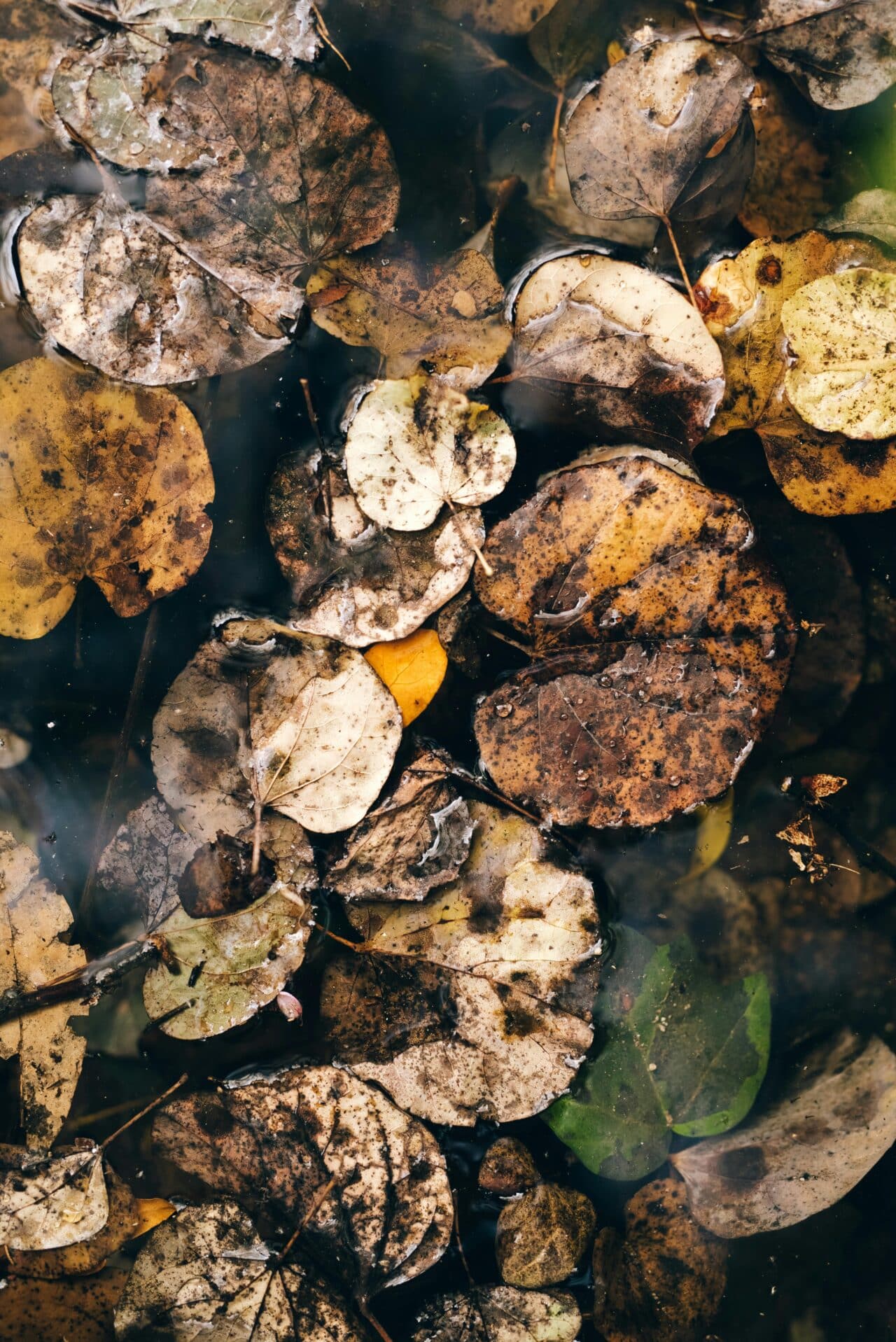You may think September would close pollen season and put an end to your allergy symptoms, but those beautiful red, yellow and orange leaves may cause you a few more weeks of allergies. Damp leaves rotting on lawns can harbor pollen and mold spores, extending allergy season.

Fallen Leaves Can Trigger Mold Allergies
Warmth and moisture are perfect growing conditions for mold. Outdoor mold typically starts growing on lawns and other grasses in the humid, hot summer months. When leaves fall, they shelter the mold like a blanket and even generate more heat as the decomposition process begins. Additionally, water from the rain or morning dew is caught on the leaves instead of soaking into the soil. All of this fosters the growth and spread of mold, making outdoor chores in the autumn difficult if you suffer from a mold allergy.
Moreover, some pollen particles may still cling to leaves even after pollen season has ended. Weeds that bloom in late summer or early fall have mostly stopped blooming by now, but that doesn’t mean the pollen already expelled is completely gone. Playing in or walking on fallen leaves can cause the pollen to become airborne and trigger allergy symptoms.
How to Prevent Allergy Flare-Ups from Leaves
The good news is that once the ground fully frosts over, the mold dies off and your symptoms should end. In the meantime, here are some prevention and management strategies to ward off symptoms:
- Avoid contact with fallen leaves. Like with any allergy, limiting exposure to allergic triggers is the simplest way to avoid experiencing symptoms. Stay inside, and try not to touch rotting leaves when you go outside.
- Wear a face mask. Face masks are effective at filtering out mold spores, pollen and dust.
- Wear gloves and long sleeves. Skin exposure to an allergic trigger can cause hives or eczema. Avoid this by covering up.
- Do yard work on dry, windless days. Moisture is a significant factor in mold growth, so aim to do your outdoor chores on dry days. Going out on days with no wind is also beneficial, since that’s less disturbance to the allergens on the leaves.
- Rake or leaf blow frequently. Regular leaf maintenance minimizes their time on the ground, so they have less time to grow mold.
- Try a leaf blower instead of a rake. Raking will stir up the allergens and send them floating in the air in every direction. With a leaf blower, you can direct that air flow away from you, reducing your contact with the allergens.
- Dispose of leaves immediately. Don’t let them continue to rot in your yard in a big pile. If anything, that pile will get moldy faster than the leaves would if they were scattered on the ground. Bag them up and dispose of them.
- Shower after yard work. Wash off any allergens that may have stuck to your skin while outside and change clothes afterward.
- Consider allergy drops. Allergy drops are a form of immunotherapy that decreases your body’s response to allergens, meaning fewer symptoms. Call Willamette ENT & Facial Plastic Surgery to learn more.
Learn More
“Dr. Strand is wonderful. In fact, all the staff are just the best. Personable, and to the point. You will be well cared for at Willamette ENT.”